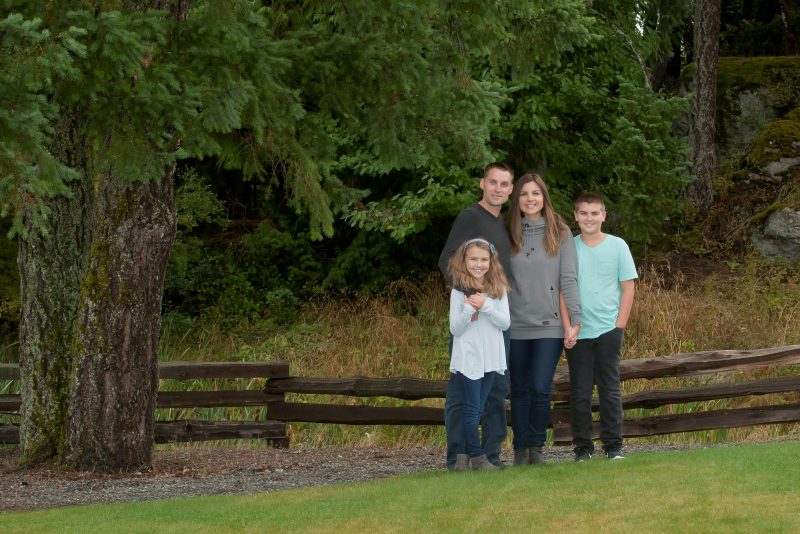
“Basically, he was stuck in the kneeling position, straining forward, making this weird roaring sound,” Angie recalls. “He was unresponsive. He was staring straight ahead, straining and sweating.”
A CT scan at their local hospital discovered a ruptured brain aneurysm. Martin was suffering from a hemorrhagic stroke. It’s fatal in close to half of all cases.
From Nanaimo, Martin was rushed to Victoria. He was brought to the intensive care unit as plans were put in place to fly him urgently to Royal Columbian Hospital and neurosurgeon Dr. Navraj Heran.
“He presented with a ruptured aneurysm where the blood leaks out of a blood vessel and spills into the space around the brain,” explains Dr. Heran, who estimates he treats about 120 cases like this each year. “It increases pressure and irritates the lining of the brain.”
In Fraser Health, all these cases are treated by Dr Heran without requiring invasive surgery to open the skull. Utilizing an innovative procedure that is only performed at a couple of hospitals in the province, Dr. Heran guides a catheter through a small incision in the thigh all the way up to the site of the aneurysm. He then uses small coils to fix the problem.
“Basically we put those coils into the aneurysm so it congeals the blood inside the weakness,” explains Dr. Heran.
Angie says the procedure took no longer than an hour, and they soon shifted their attention to Martin’s recovery. He stayed at Royal Columbian for just over two weeks, and both he and Angie have developed a strong appreciation for the care they were provided.
“We had absolutely amazing nurses and therapists,” says Angie. “They were so educated and aware. When you are in a situation that is so scary and unusual, and you have these people at your back that are the best of the best but also driven to continue to learn, there’s no words that express how comforting that is.”
Just over a year later, Martin continues to recover from complications including fatigue and eye movement challenges. Overall, however, he feels thankful.
“I’m doing pretty good,” he says. “Somehow I came out of it…”
“Relatively unscathed,” Angie adds.
